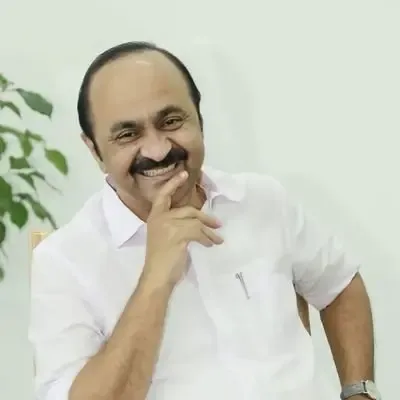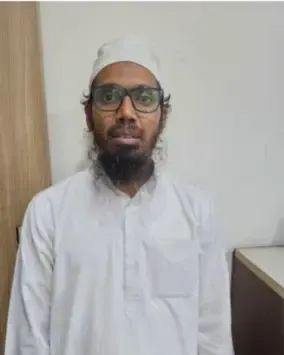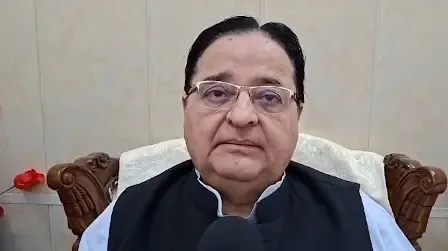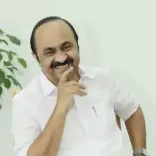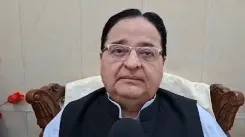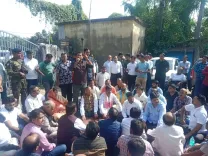Autorickshaw Drivers in Chennai Stage 12-Hour Strike Today
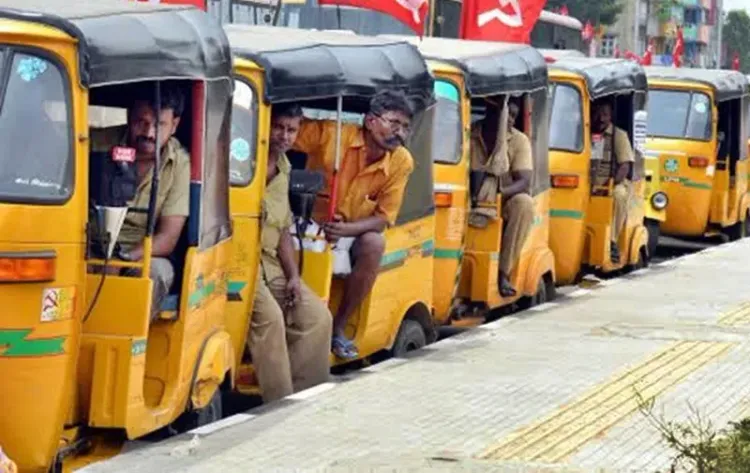
Synopsis
Key Takeaways
- 12-hour strike initiated by Chennai autorickshaw drivers.
- Protest against GCP's QR code system.
- Demands include fare revision and a state-run ride-hailing app.
- Auto fares unchanged since 2013.
- Drivers report significant loss in daily rides.
Chennai, March 19 (NationPress) Autorickshaw drivers in Chennai have initiated a 12-hour strike today, expressing their dissent against the Greater Chennai Police’s (GCP) mandate to implement a QR code system in their vehicles. This strike commenced at 6 a.m. and will persist until 6 p.m., serving to underscore their long-standing grievances, which include demands for a fare adjustment, a government-operated ride-hailing application, and a prohibition on bike taxis.
The GCP unveiled the QR code system on March 8, aiming to bolster passenger safety, especially for women and children. This system enables real-time tracking and incorporates an SOS feature for emergencies. However, auto drivers contend that instead of prioritizing passenger safety initiatives, the government should first address their requests for improved wages and working conditions.
The Tamil Nadu Auto Workers Federation, aligned with the Centre of Indian Trade Unions (CITU), has been pushing for a fare increase since a 2022 Madras High Court ruling mandated the state government to revise auto fares. Despite ongoing discussions between the fare-fixing committee and auto unions, no updates have been put into effect.
As it stands, auto fares in Tamil Nadu have remained stagnant since 2013, with a base fare of Rs 25 for the first 1.8 km and Rs 12 per subsequent km. The unions are advocating for a minimum fare of Rs 50, with Rs 25 for each additional km.
In response to governmental inaction, some drivers have independently adjusted their rates, now charging Rs 50 as the base fare and Rs 18 per km, although only a small fraction has adopted this increase. Additionally, the drivers are requesting a state-operated ride-hailing app, akin to Kerala’s dynamic pricing model.
Many claim that private aggregators like Ola, Uber, and Rapido impose hidden fees that exploit both drivers and passengers.
They assert that a government-regulated app would guarantee fair pricing, transparency, and enhanced revenue for the state.
Selvarajan, an auto driver from Teynampet, reported a marked decline in daily rides. “Previously, I received around 30 rides daily. Now, that number has dropped to 15-20. Numerous bike taxi riders operate as a secondary venture while commuting to their jobs, further diminishing our earnings,” he stated.
According to reports, Chennai has 89,641 registered autorickshaws, with approximately 78,000 associated with private ride-hailing services.
As of now, the first stage of the QR code initiative has seen 88,859 auto and shared auto drivers receiving QR codes. Auto drivers have also raised issues regarding the durability of the QR code stickers, which they claim are made of paper and prone to damage.
“These stickers degrade rapidly, rendering them ineffective over time,” remarked Sujith, another auto driver involved in the protest.
Besides fare increases and a ride-hailing app, the unions are imploring Tamil Nadu Chief Minister M.K. Stalin to fulfill his electoral promise of providing a Rs 10,000 subsidy for acquiring new autorickshaws.
The striking drivers have congregated at pivotal locations, including Rajarathinam Stadium, Egmore, and Anna Salai near Tarapore Towers, staging demonstrations to advocate for their demands.
With the strike set to continue until evening, Chennai commuters are likely to experience inconvenience, shedding light on the escalating tensions between autorickshaw drivers and authorities over longstanding issues.

